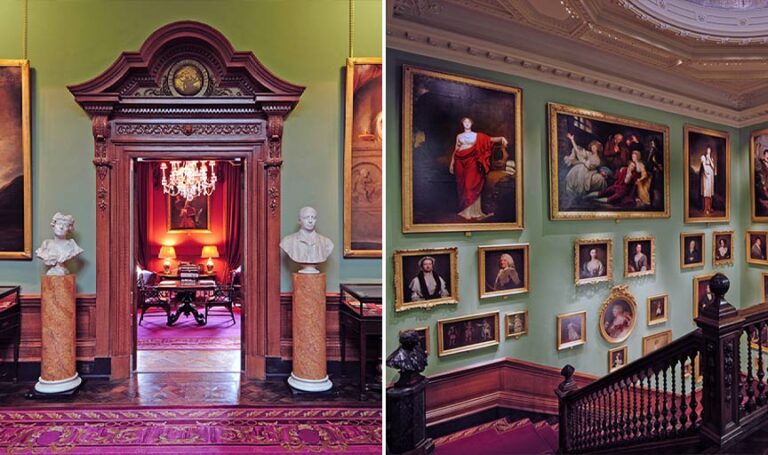British elite quit exclusive Garrick Club after gentlemen’s club refuses to admit women
In a move that perfectly sums up the archaic ideologies still clinging to the underbelly of London’s social scene, the gentlemen’s club the Garrick Club—one of the oldest ones in the world—has been stirring up quite a storm recently after it confirmed that it would be sticking to its outdated rule of not allowing women as members. This refusal has led to some big names from the male-only elite stepping down, highlighting the club’s reluctance to move with the times.
Sir Richard Moore, chief of the Secret Intelligence Service (MI6), and UK Cabinet Secretary Simon Case have both put forward their resignations from the prestigious establishment, signalling an important shift in attitudes towards gender inclusivity.
As mentioned just above, the Garrick Club, nestled in the historic streets of Garrick Street since its founding in 1831, stands as one of the oldest members’ clubs globally. Yet, despite its storied past, the club’s obstinate adherence to its men-only membership policy has drawn sharp criticism and scrutiny, from both within and outside the society.
According to The Guardian, the complete membership roster of the exclusively male club lays bare its pivotal role as a bastion of the British establishment. Among its ranks are numerous prominent figures, including leading lawyers, heads of publicly-funded arts institutions, and even King Charles himself.
Harriet Harman, the Labour MP who drafted the Equality Act 2010, expressed that politicians and senior civil servants should refrain from membership in clubs that prohibit women from becoming members.
“Equality for women is a recognised public policy objective and all those in public life should be committed to that objective. These clubs prop up structures that restrict women’s access to power,” she told The Guardian.
Sir Moore’s choice to step down was allegedly triggered by the club’s unwavering stance against admitting women as members, a position he deemed unsustainable. Despite being initially persuaded to stay by promises of an upcoming vote on the issue, the ambiguity surrounding the timing and voting procedures ultimately led to his departure. Similarly, Case, facing scrutiny during a parliamentary committee hearing regarding his club membership, also opted to resign.
In a scathing rebuke, Labour MP Liam Byrne cast doubt on Case’s capacity to promote inclusivity within the civil service while aligning himself with an all-male bastion. However, the Cabinet Secretary’s response, dripping with condescension and evasion, perfectly encapsulated the entrenched mindset upholding the club’s outdated policies. His assertion that meaningful change requires “internal participation” rings hollow amid widespread condemnation, underscoring the absurdity of clinging to antiquated traditions in a rapidly evolving society.
I’m afraid any good the Cabinet Secretary may have sought ‘reforming the Garrick from the inside’ is well outweighed by the bad of our Civil Service chief indulging in membership of an elite all male club
— Liam Byrne MP (@liambyrnemp) March 20, 2024
Here’s my exchange with Simon Case at @CommonsLiaison last night pic.twitter.com/WoHQS0qfra
The ridiculousness of senior male figures pushing for change within an institution known for its exclusivity is laughable. The idea of changing things from within, once seen as a defence, now just shows the hypocrisy of maintaining outdated systems. While Sir Moore’s promise to end all-male shortlists at MI6 might seem hopeful, it’s a stark reminder of the discrimination still alive in these old men’s clubs.
Throughout history, men’s clubs have symbolised privilege and exclusivity, representing a bygone era where power and influence were reserved solely for the dominant sex. Do you remember the infamous Bullingdon Club? Well, the private dining society reserved for Oxford University’s male students was notorious for its wealthy members, extravagant feasts, and rowdy antics, which often included sexism, vandalism, and bullying.
The Bullingdon Club alumni include many of Britain’s past and present political elite, figures such as David Cameron, George Osborne, and Boris Johnson. Quite the illustrious bunch, aren’t they? But let’s not forget the club’s charming traditions, like inviting female sex workers to their opulent dinners for some added ambience. Nothing says ‘prestige’ like demeaning women and causing property damage, right?
@thechampagne_socialist Link to episode in bio #fyp #uk #politics #tory @Not to get political
♬ original sound - The cham🅿️agne socialist
Caroline Nokes, a Conservative MP and chair of the women and equalities committee, underscored the outdated nature of clubs that still exclude half of the population in today’s society, stating: “It’s wrong in today’s society to have places that are still so pivotal to the establishment that excludes 51 per cent of the population.”
While MI5 boasts a lineage of female Directors General, challenging entrenched notions of leadership and capability, the glass ceiling remains stubbornly intact at MI6, with Sir Moore’s tenure marking a notable departure from tradition.
As of now, throughout its extensive history, MI6 has never had a female chief. However, Moore, who assumed his role in 2020, expressed his commitment to gender equality by vowing to be the last chief selected from an all-male shortlist.
As the dust settles on the resignations of Sir Moore and Case, the Garrick Club finds itself at a crossroads: adapt or become relics of a bygone era.






